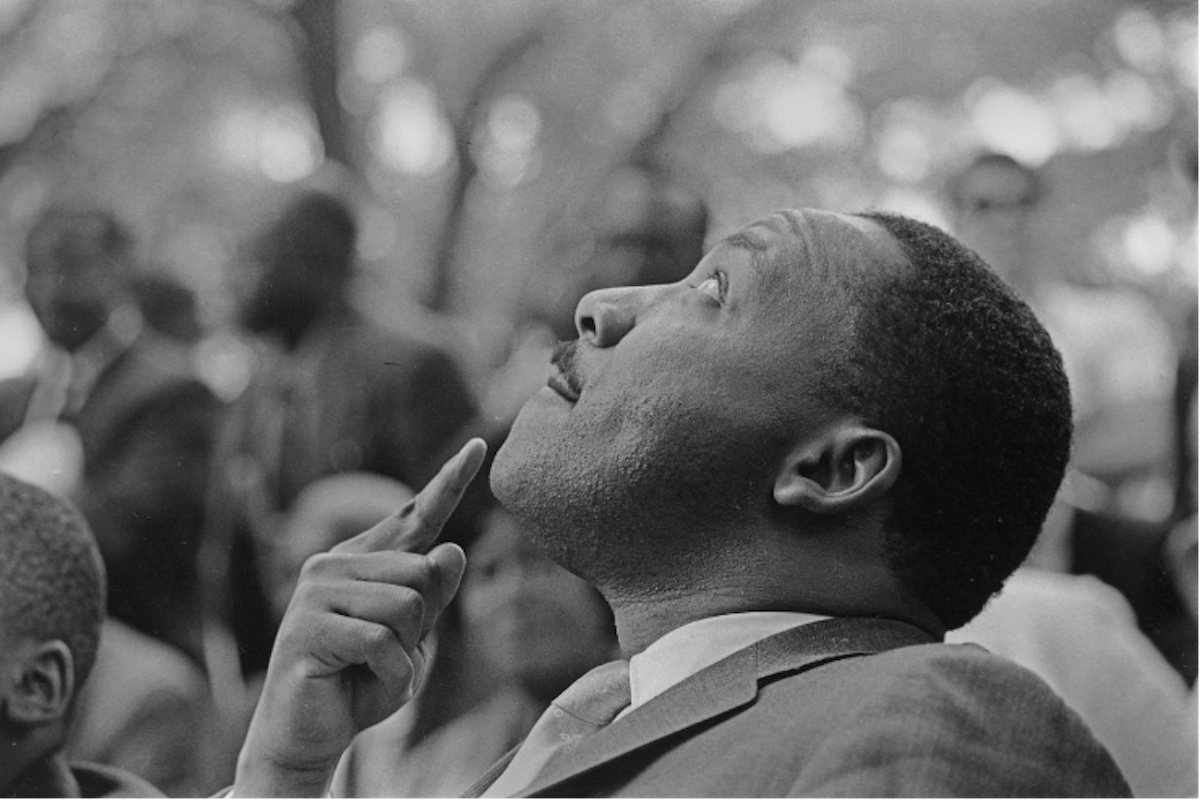Emory’s 2023 King Week focuses on service
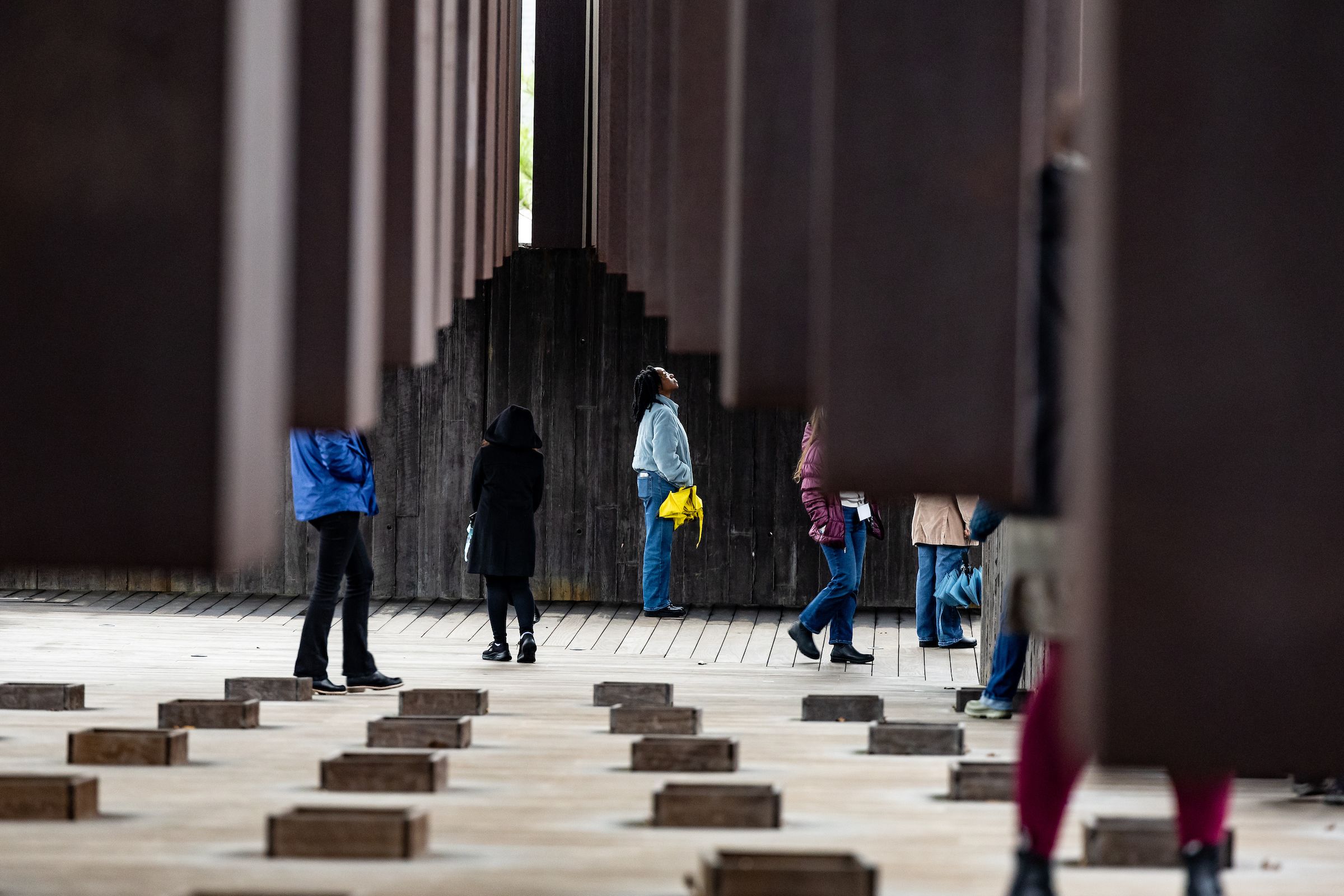
Every year, the Emory University community honors the life and legacy of the Rev. Dr. Martin Luther King Jr. with a week of volunteer projects, keynote speeches and celebrations. King Week serves as a reminder to the entire community that the work of expanding civil rights and social justice is not done and that everyone has a part to play in it.
The 2023 theme for King Week was “It Starts with Me: Cultivating a Beloved Community Mindset to Transform Unjust Systems,” which was inspired by The King Center’s theme. On Emory’s Oxford and Atlanta campuses, students, faculty, staff and other people in the surrounding areas were challenged to think about how they can make a positive difference in the world.
Here’s a peek into King Week at Emory:
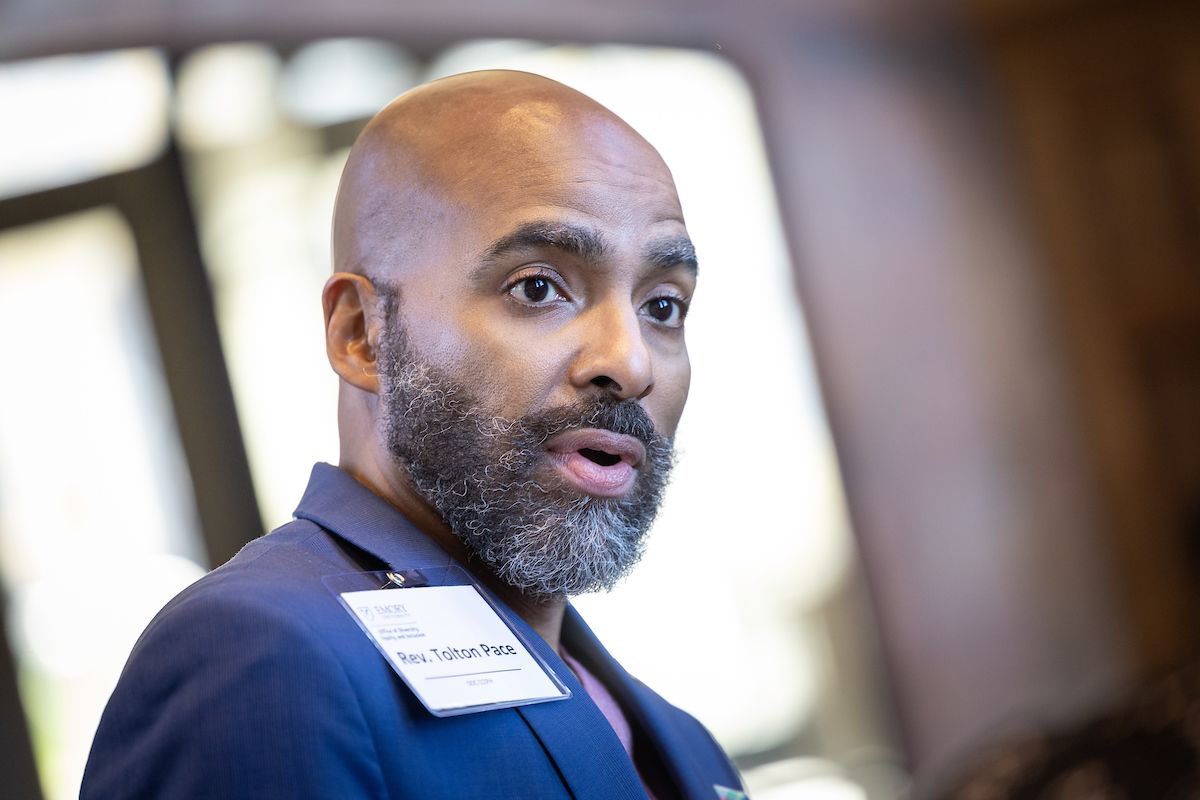
Rev. Tolton Pace 00C 02PH
Rev. Tolton Pace 00C 02PH
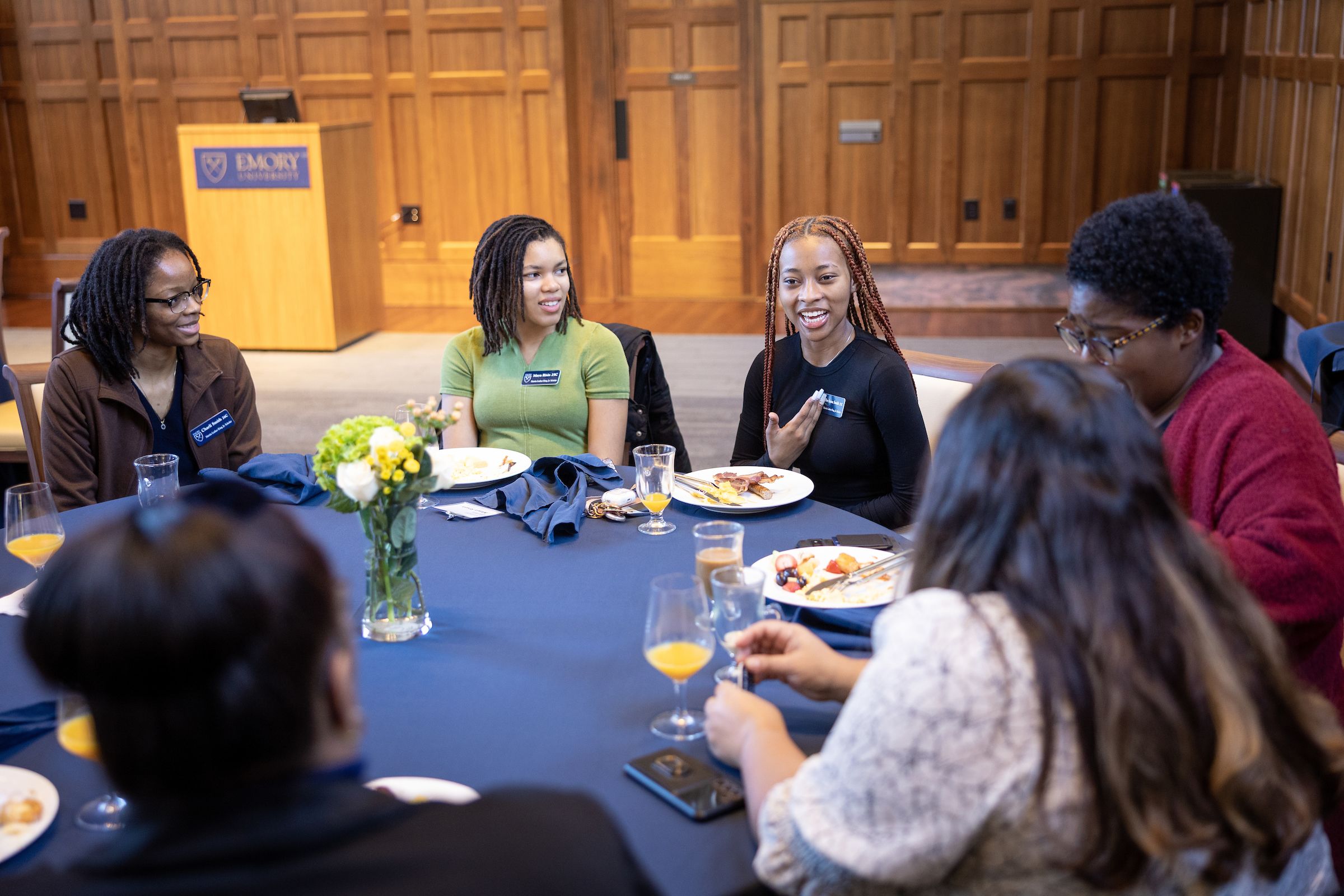
Before the MLK Beloved Community Service, current and past Martin Luther King, Jr.-Woodruff Scholars gathered for a reception. Tolton Pace, the 2023 speaker, is an alumnus of the program.
Before the MLK Beloved Community Service, current and past Martin Luther King, Jr.-Woodruff Scholars gathered for a reception. Tolton Pace, the 2023 speaker, is an alumnus of the program.

Rev. Tolton Pace 00C 02PH
On Sunday, Jan. 15, the university hosted its annual MLK Beloved Community Service in Cannon Chapel. This year’s speaker was Rev. Tolton Pace 00C 02PH, who was a member of the Voices of Inner Strength gospel choir as a student.
Voices of Inner Strength sang a musical selection before Pace delivered a message inspired by King’s “I Have a Dream” speech and Hamlet’s “To be, or not to be” soliloquy. He encouraged a full crowd to believe in their dreams, be bold in pursuit of God’s dream for their lives and be brilliant in everything they do. View the full sermon.

Before the MLK Beloved Community Service, current and past Martin Luther King, Jr.-Woodruff Scholars gathered for a reception. Tolton Pace, the 2023 speaker, is an alumnus of the program.
Before the Beloved Community service, the Office of Diversity, Equity and Inclusion and Emory College held a reception for current and past Martin Luther King Jr.-Woodruff Scholars. Every year, the MLK-Woodruff Scholarship is awarded to exceptional incoming students who graduate from a public high school in the city of Atlanta. Pace is an alumnus of the program.
“Everybody can be great because everybody can serve.”
On Martin Luther King Jr. Day, Jan. 16, students, faculty and staff participated in nine community service events as part of Emory’s Day On. Volunteer projects ranged from sorting donations with Friends of Disabled Adults and Children and organizing items at the Wellspring Treasures store to cleaning up green spaces and more.
Here, a group of students helped sort donations at the Toco Hills Community Alliance food pantry.
Students also sorted donations at the King Center for Non-Violent Social Change.
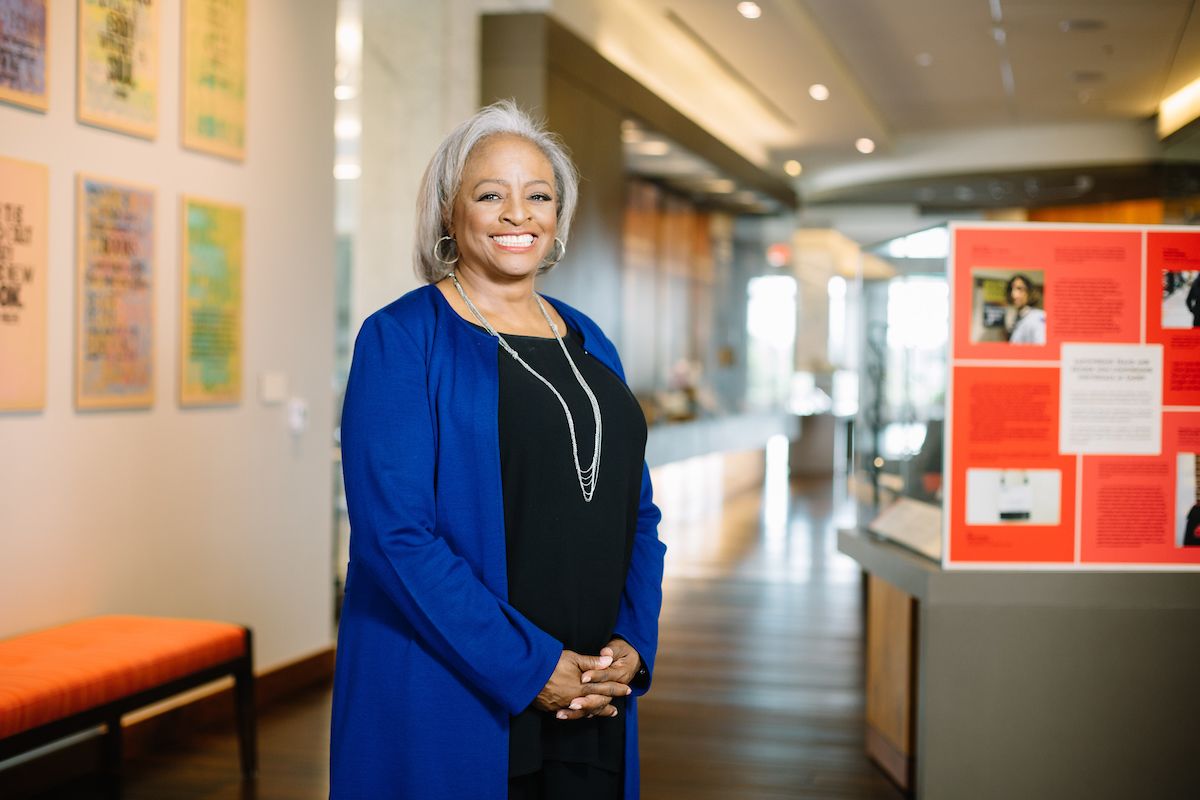
Professor Carol Anderson
Professor Carol Anderson
On National Day of Racial Healing (NDRH), Jan. 17, community members gathered in the Harland Cinema for a screening of Professor Carol Anderson’s documentary film, “I, Too.” This is the seventh-annual NDRH and the first commemoration of it at Emory.

Professor Carol Anderson
In “I, Too,” which takes its name from one of Langston Hughes’ poems, Anderson uses the Jan. 6, 2021, insurrection as a jumping-off point to explore America’s history of race-based, vigilante violence. She travels to Hamburg, South Carolina; Wilmington, North Carolina; and Ocoee, Florida — all sites where free Black communities were burned by white mobs — to dissect the political environment that led to the insurrection. After the screening, Anderson sat with WABE host Rose Scott for a discussion and Q&A session.
On Jan. 17, the Oxford campus hosted its annual MLK Celebration, which returned to an in-person event in Old Chapel this year. The event featured Marla Frederick, Asa Griggs Candler Professor of Religion and Culture, as the keynote speaker. There were also remarks from student leaders and performances by Oxappella (Oxford’s a cappella group), a string quartet and the Newton County Interdenominational Community Choir.
Oxford and Emory College alumna Avis Williams 78Ox 98C 08T 18T (left) joined others to sing spirituals at the annual Oxford MLK Day celebration.
Faculty, staff, students and community members filled Old Chapel for the annual Oxford College King Week celebration.
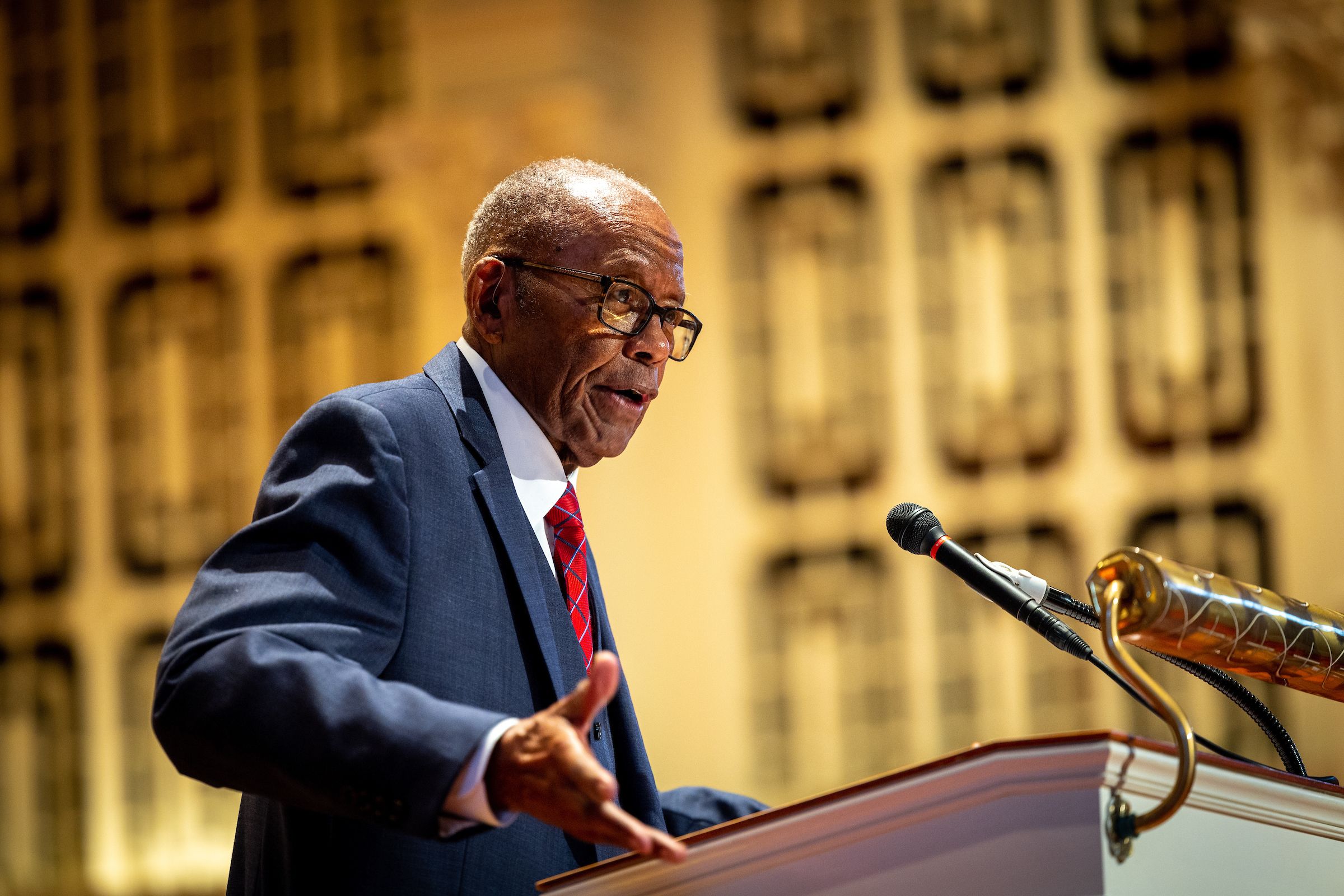
Civil rights attorney Fred Gray shared stories about planning the 1955 Montgomery Bus Boycott with about 50 attendees in Glenn Memorial Auditorium.
Civil rights attorney Fred Gray shared stories about planning the 1955 Montgomery Bus Boycott with about 50 attendees in Glenn Memorial Auditorium.
"We talk a lot about Dr. King’s dream, but the first step to making the dream come true is to wake up."

Civil rights attorney Fred Gray shared stories about planning the 1955 Montgomery Bus Boycott with about 50 attendees in Glenn Memorial Auditorium.
Fred Gray had just passed the bar exam and earned his license to practice law in Alabama when the National Association for the Advancement of Colored People called to ask if he would serve as the attorney for a woman named Rosa Parks, who refused to give up her seat to a white person on the back of a Montgomery city bus.
On Jan. 18, the Department of African American Studies invited Gray to give a lecture titled “Call My Lawyer” in Glenn Memorial Auditorium. In it, Gray broke down the strategy behind the boycott and shared how the Montgomery Bus Boycott launched his lauded career as a civil rights attorney. President Biden awarded Gray the Presidential Medal of Freedom in 2022.
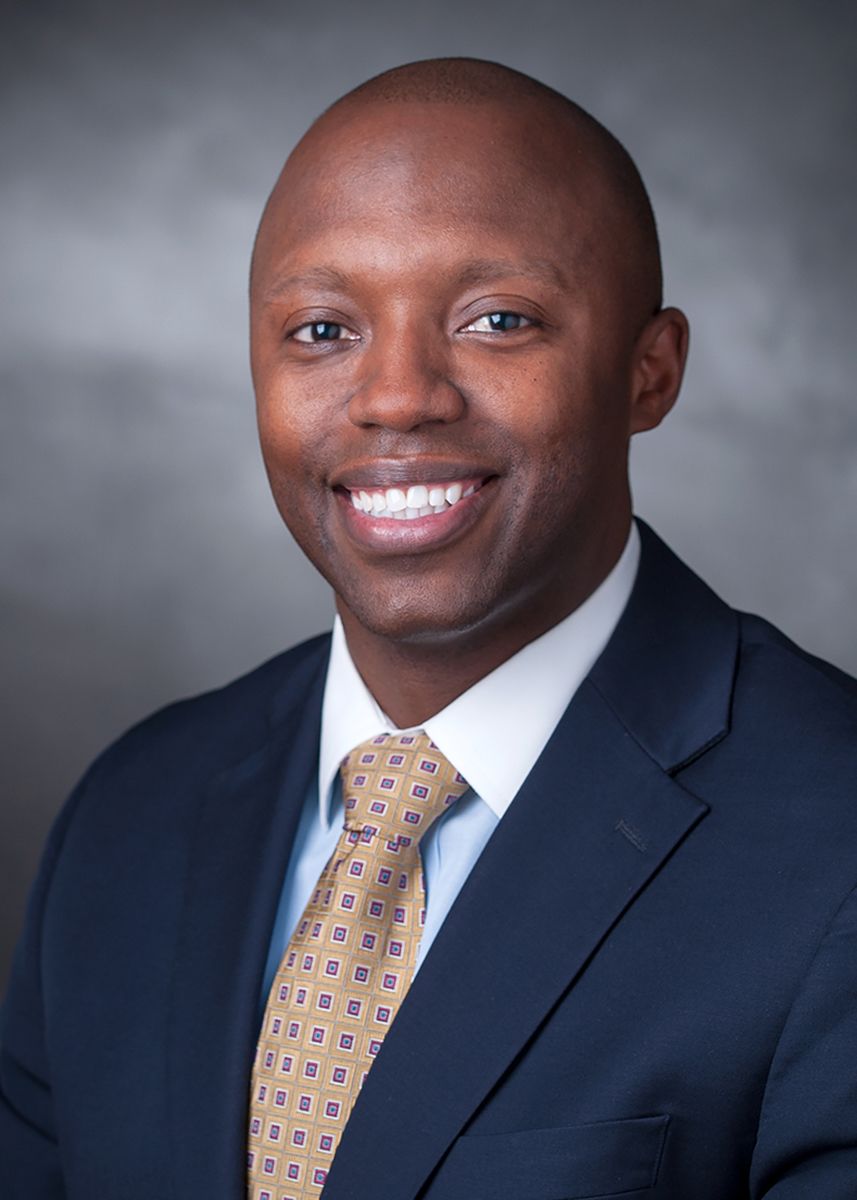
Rashard Johnson is the CEO of Emory Decatur Hospital, Emory Hillandale Hospital and Emory Long-Term Acute Care.
Rashard Johnson is the CEO of Emory Decatur Hospital, Emory Hillandale Hospital and Emory Long-Term Acute Care.
“What is your why? How are you furthering Dr. King’s dream?”

Rashard Johnson is the CEO of Emory Decatur Hospital, Emory Hillandale Hospital and Emory Long-Term Acute Care.
The annual MLK Community Service Awards, held on Jan. 19, honor those in the Emory community and across metro Atlanta whose commitment to service exemplifies King’s values. The awards are sponsored by the Rollins School of Public Health, Goizueta Business School, Emory University School of Medicine and the Nell Hodgson Woodruff School of Nursing.
This year, Rashard Johnson, CEO of Emory Decatur Hospital, Emory Hillandale Hospital and Emory Long-Term Acute Care, was the keynote speaker. Johnson shared anecdotes from his personal story.
“Growing up in Liberty City, by the time I was 21, I buried 25 friends or family members who died from violence,” he recalled. “I still see a therapist to this day to deal with that trauma, but I sit here as the CEO of three hospitals.”
Johnson’s remarks focused on social determinants of health and Emory’s partnership with DeKalb County to create the Emory-Hillandale Violence Prevention Center, where the goal is to spread healing through health care. It involves psychologists, psychiatrists, doctors, transportation services and community organizations to help families recover from trauma.
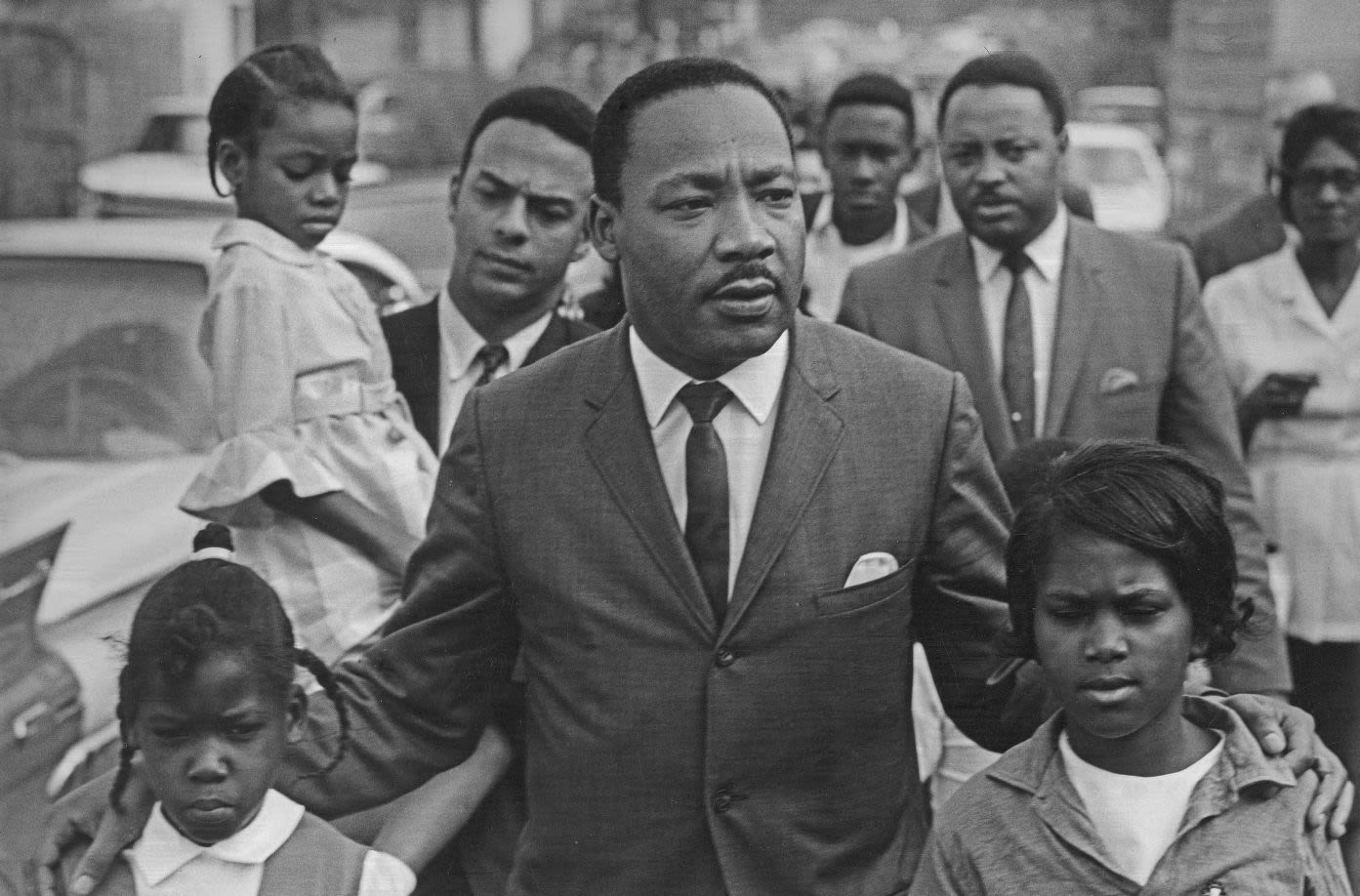
Foreground: Eva Grace Lemon (7 years old), Martin Luther King Jr. and Aretha Willis (7). Background: Andy Young, Hosea Williams. March to integrate schools, Grenada, Miss., 1966. Bob Fitch Photography Archive, Department of Special Collections, Stanford University Libraries.
Foreground: Eva Grace Lemon (7 years old), Martin Luther King Jr. and Aretha Willis (7). Background: Andy Young, Hosea Williams. March to integrate schools, Grenada, Miss., 1966. Bob Fitch Photography Archive, Department of Special Collections, Stanford University Libraries.

Foreground: Eva Grace Lemon (7 years old), Martin Luther King Jr. and Aretha Willis (7). Background: Andy Young, Hosea Williams. March to integrate schools, Grenada, Miss., 1966. Bob Fitch Photography Archive, Department of Special Collections, Stanford University Libraries.
The 2023 MLK Award honorees are:
- The Latino Community Fund, which provides food, vaccinations and other services across the Metro Atlanta area.
- Policing Alternatives and Diversion Initiative, which partners with the city of Atlanta to reduce arrest and incarceration for those living in extreme poverty by connecting people with resources. Anyone can call the city’s 311 line if they see someone who is experiencing a behavioral concern.
- Zami Nobla, an organization committed to building a base of power for Black lesbians over the age of 40 to keep them engaged with the community, advance rights and increase visibility.
- Randi Smith developed violence-prevention and gun-safety programs at Grady Memorial Hospital. Smith is associate professor of surgery, trauma/surgical critical care at Grady and also a faculty member in the School of Medicine’s Department of Surgery.
- Fayron Epps, assistant professor in the School of Nursing, created a program to cater to the needs of African American caregivers, with a focus on those caring for people who have dementia.
- As the coordinator at Carver STEAM Academy, Javan Wyche helped to create a farm on the campus to alleviate food insecurity for students and their families.
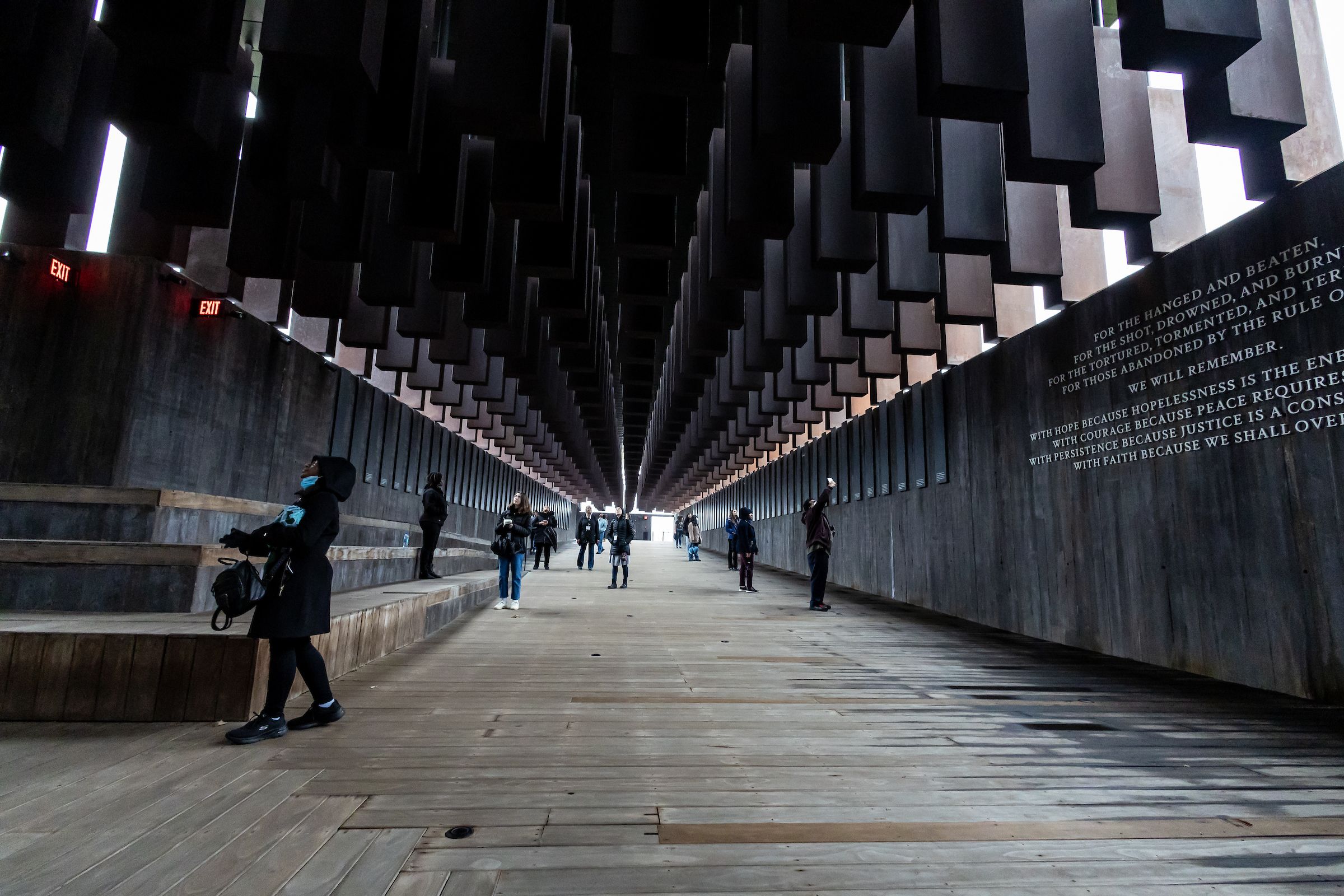
Emory students stand beneath the steel beams at the Equal Justice Initiative Memorial, which remembers those who lost their lives to lynching.
Emory students stand beneath the steel beams at the Equal Justice Initiative Memorial, which remembers those who lost their lives to lynching.

The might boxes between the steel beams at the Equal Justice Initiative Memorial show the distance between dangling feet and the ground.
The might boxes between the steel beams at the Equal Justice Initiative Memorial show the distance between dangling feet and the ground.
At the end of King Week, on Jan. 22, the Office of Spiritual and Religious Life offered students, faculty and staff the chance to visit the Equal Justice Initiative Museum and Memorial.

Emory students stand beneath the steel beams at the Equal Justice Initiative Memorial, which remembers those who lost their lives to lynching.
Located in Montgomery, Alabama, the sites were founded by Bryan Stevenson, an attorney, author and advocate who helps those who have been unfairly or wrongfully convicted of a crime. The museum tells the story of America from slavery to mass incarceration. The memorial remembers those who lost their lives to race-based lynching in the 19th and 20th centuries.
During the visit, students engaged in group discussions and journaling exercises to reflect on how they can use their education to advance justice.
Story by Kelundra Smith. Photos by Kay Hinton, Stephen Nowland and Sarah Woods of Emory Photo/Video and submitted by students. Design by Ruby Katz.
To learn more about Emory, please visit:
Emory News Center | Emory University


